When it comes to understanding your telecom bill, the fees can sometimes feel a bit overwhelming. It's not just about the variety of services; it's also about the intricate breakdown of charges that can leave you scratching your head. In this article, we'll simplify standard telecom fees, highlighting what each charge means and how they contribute to your overall service. So, let's dive in and unravel the mysteries of your telecom fees!
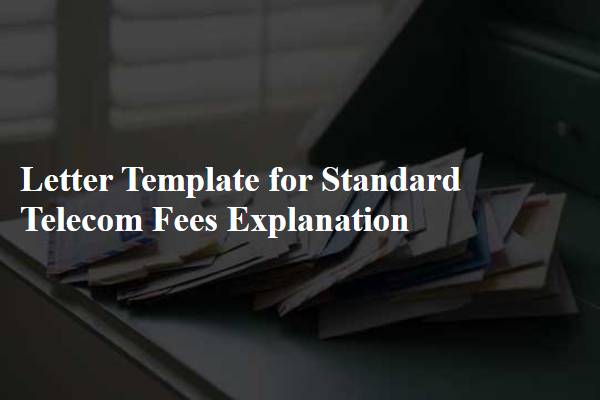
Clear introduction of service and charges.
Telecommunication services encompass a variety of offerings, including voice calls, text messaging, and mobile data usage, typically provided by major companies like Verizon and AT&T. Standard fees may include monthly subscription costs, generally ranging from $30 to $100 depending on the plan, and additional charges such as activation fees (averaging $35), overage fees for exceeding data limits, and international calling rates that can vary significantly based on the destination. Understanding these charges helps customers manage their accounts effectively, ensuring they select plans tailored to their communication needs without incurring unexpected expenses.
Detailed breakdown of fees and charges.
Telecommunications services can involve a wide range of fees and charges that vary based on the service provider and the chosen plan. Standard telecom fees typically include monthly service charges, which cover access to voice, text, and data services, as well as one-time activation fees that may apply upon initiating the service. In addition, extra charges may arise from exceeding data limits, often measured in gigabytes, or from international calling rates that vary significantly depending on destination countries. Regulatory fees mandated by federal agencies, such as the Federal Communications Commission (FCC) in the United States, can contribute to the overall bill. Taxes levied at the local, state, and federal levels also affect the total cost, which may include sales tax or service-specific taxes. Some providers offer detailed statements itemizing each charge, allowing customers to easily understand and track their expenses each billing cycle.
Justification and reasoning for each charge.
Telecommunication fees encompass a variety of charges that collectively support service delivery. Monthly subscription fees fall under basic access charges, ensuring users retain connectivity to networks like 4G and 5G across smartphones. Data usage charges, often based on gigabytes consumed, reflect the cost of bandwidth utilized, with average prices ranging from $10 to $30 per GB depending on the plan. International call rates apply when engaging in conversations with users overseas, with rates varying significantly by destination, sometimes exceeding $2 per minute in certain countries. Equipment rental fees may be necessary for items like routers or modems, typically around $5 to $15 monthly, providing customers with the latest technology. Lastly, taxes and regulatory fees contribute to government oversight of the telecommunications industry, often totaling 5% to 10% of the total bill.
Contact information for further inquiries.
Telecommunication service providers often charge standard fees for various services such as mobile data, voice calls, and SMS. Monthly subscription plans for individuals can range from $30 to $100, depending on the package selected, which might include unlimited data or various prepaid options. Additional fees, such as activation charges (typically around $25) and international calling rates (which can vary significantly based on destination), can also apply. Many providers have fees associated with exceeding data limits or late payments, often resulting in overage charges of $10 per gigabyte. For any inquiries related to billing, technical support, or service plans, customers can reach out to the customer service department via the designated phone number or email address listed on the provider's official website.
Professional and courteous closing statement.
Telecommunication service providers implement standard fees to maintain network infrastructure, enhance service quality, and ensure customer support. These fees encompass various aspects including monthly service charges, activation fees, and equipment rental costs. For instance, the typical activation fee can range from $20 to $50 based on service agreements. Additionally, equipment rental fees for devices such as routers can average around $10 per month. Understanding these fees allows customers to make informed decisions regarding their service plans and usage. Regular reviews of billing statements ensure transparency and accuracy, promoting a positive customer experience in areas like reliability and connectivity.

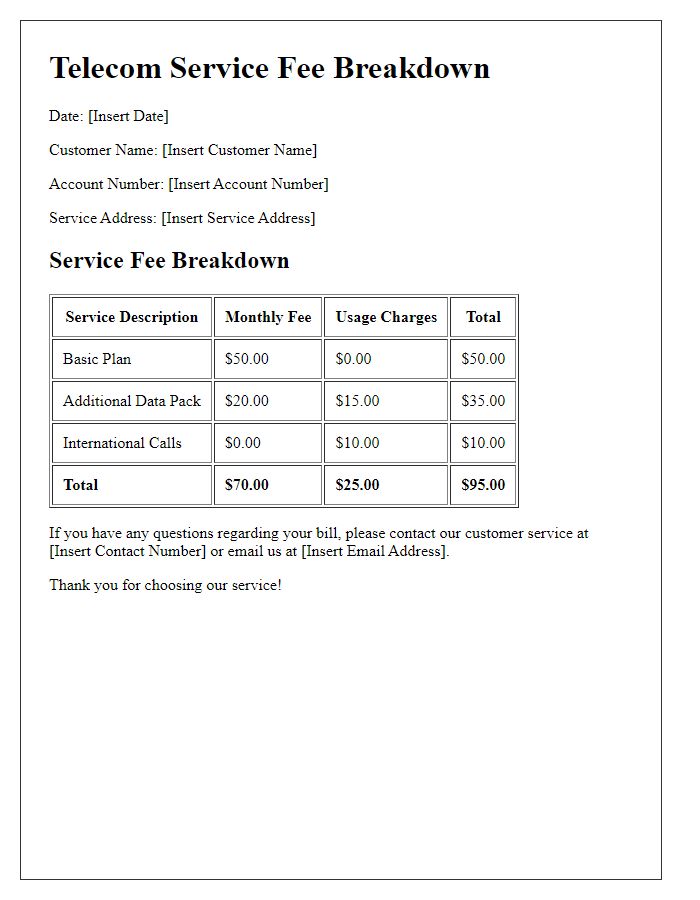
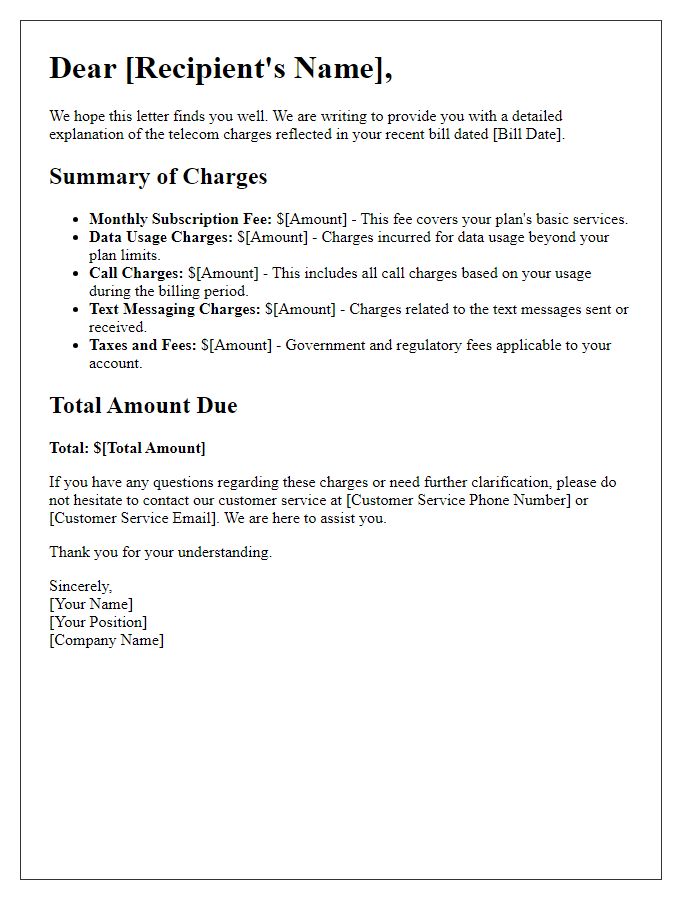

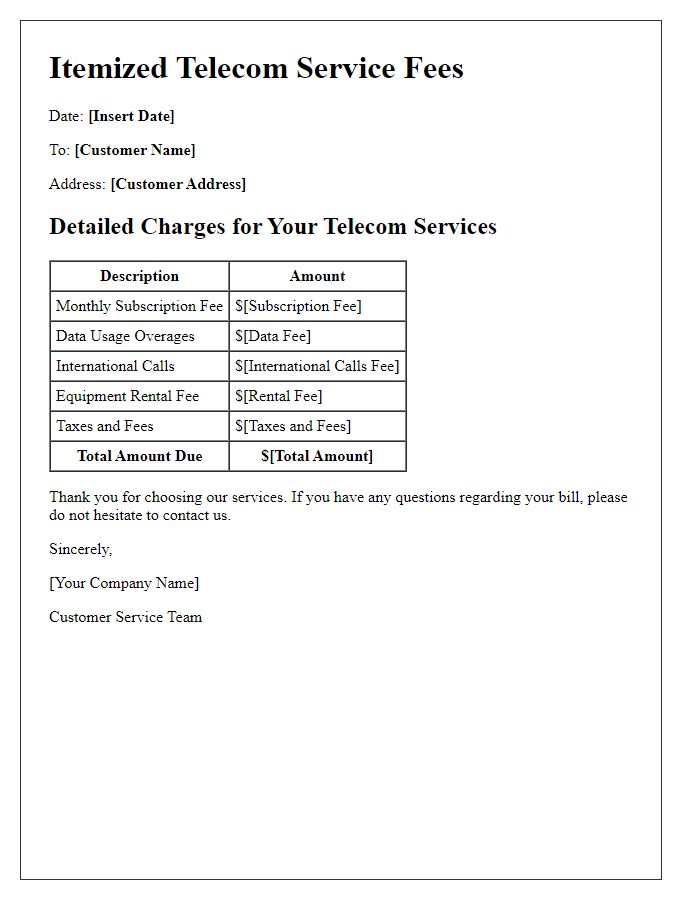
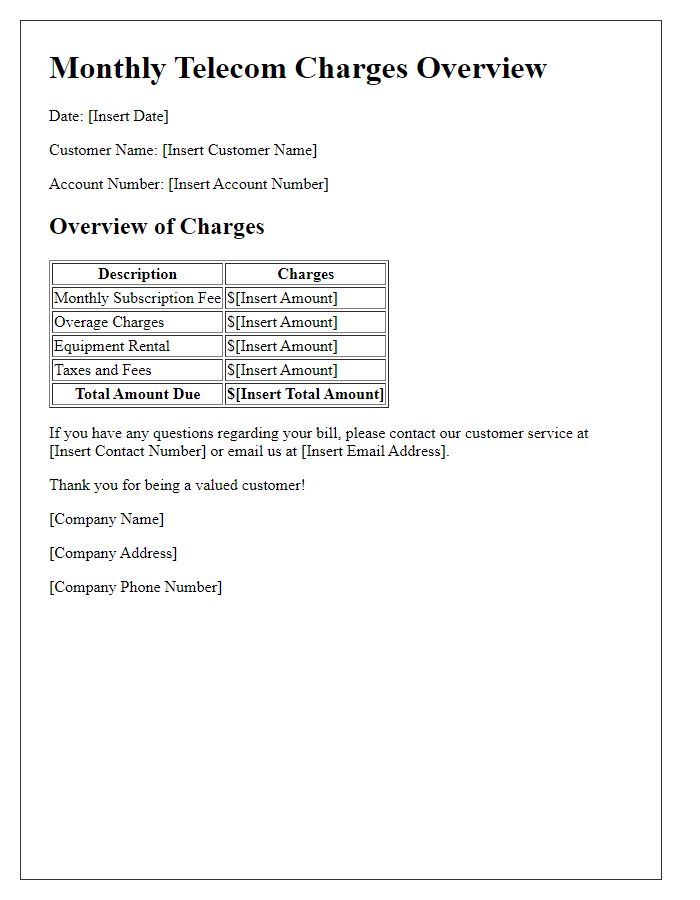
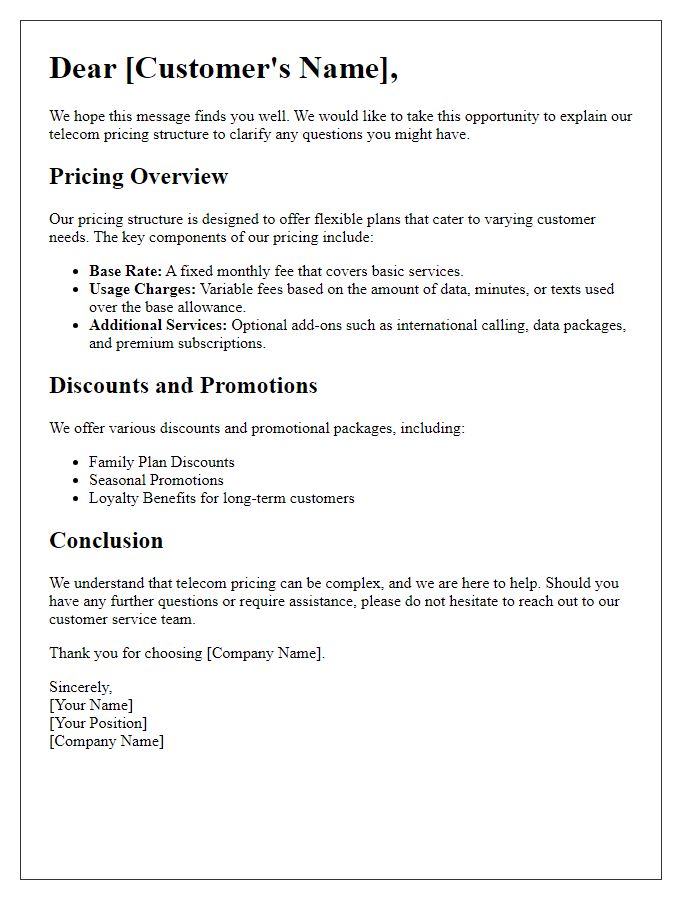
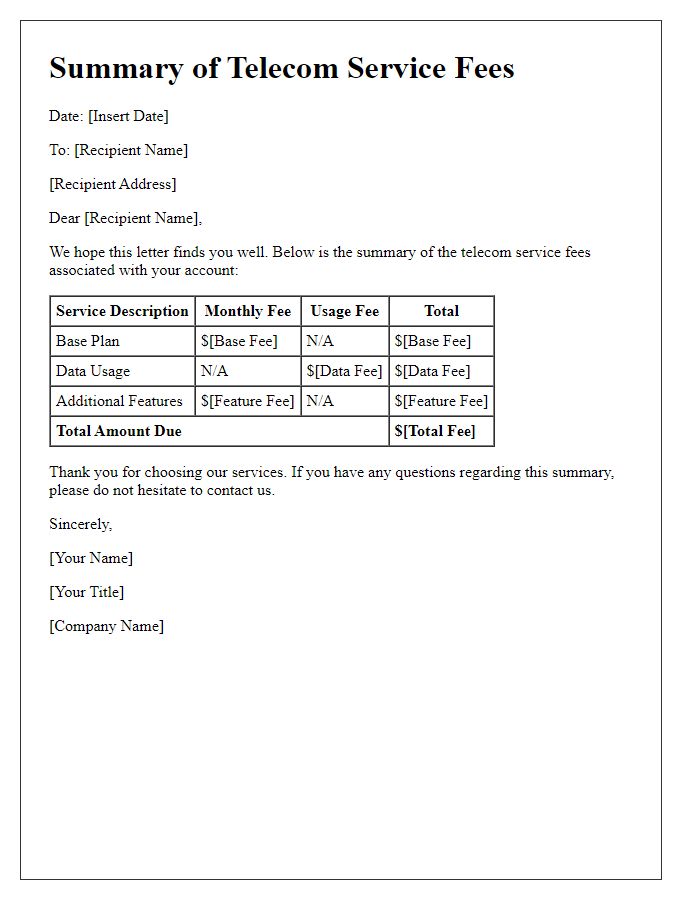
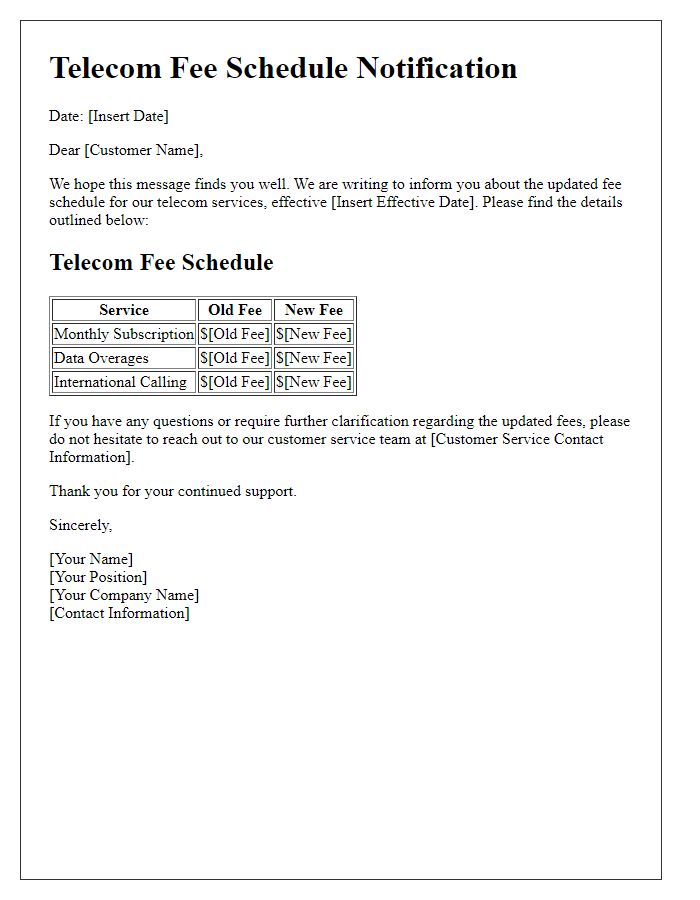
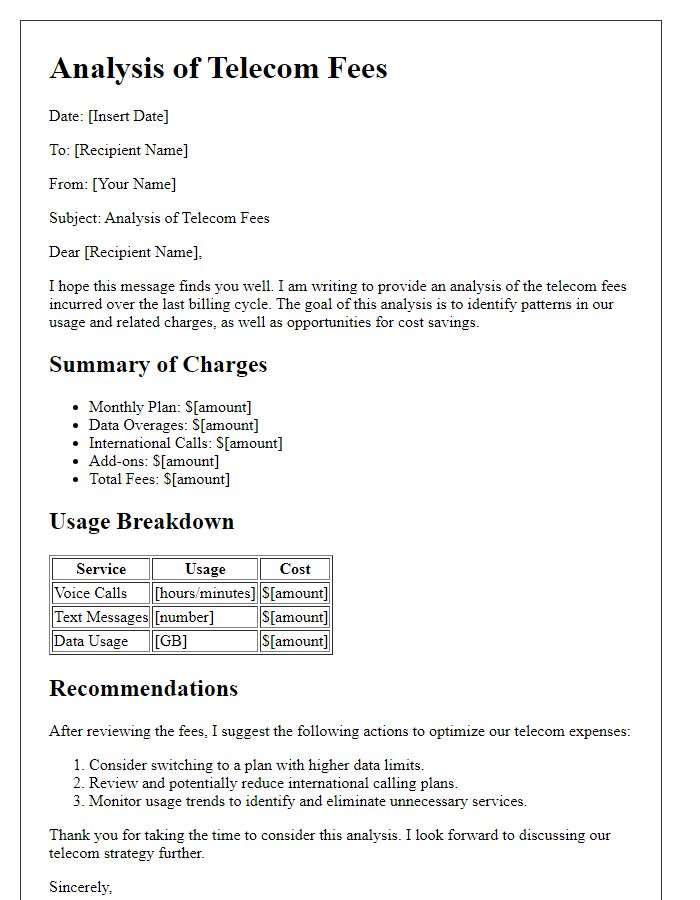
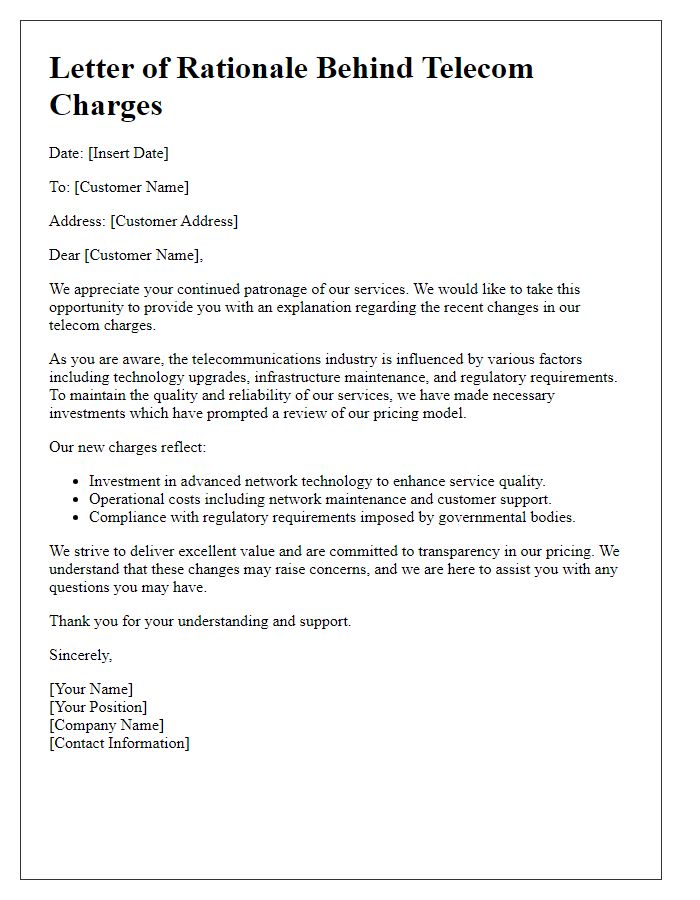

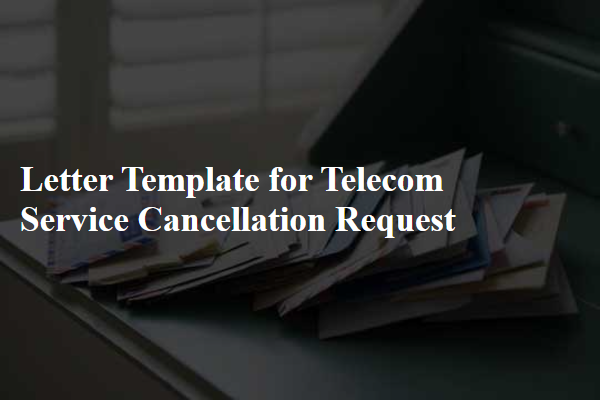
Comments